I am going to ramble a bit in thinking through some of the content of the original source. I consider myself a humanist socialist/communist, that I think there is ethical considerations in Marx's analysis and for a person who wishes to pursue radical ends.
I am suspicious however of the moralizer and of the dogmatic objectivist.
And one concern I have about the following paragraph:
Other ideas of humanism belong to the eighteenth and nineteenth century; they retain an image of man which has been surpassed by the development of society. This classical image still guides Marx's early writings; it finds expression in the notion of the all-round individual, the "personality" which fulfills itself in a realm of freedom. But this notion pertains to a stage where the intellectual culture was still divorced from the material culture, not yet incorporated into mass production and consumption, where the mind and the soul were not yet taken over by scientific management, where time and space were not yet occupied, in their entirety, by organized business and organized relaxation—where there could still be a realm of freedom not correlated with that of necessity. Even so, it is difficult to envisage what Marx's all-round individual would or would not do—simply in terms of occupation or nonoccupation. There is an unfortunate kernel of truth in the malicious denunciation of the vision of free individuals who spend their day in alternating between fishing, hunting, and being creative. If this vision were to become reality tomorrow (and it could far more easily become reality than when Marx wrote!), it would be the very denial of freedom and of humanity.
Is that I wonder what Marcuse replaces it with, as I have been persuaded that there is an ethical content to Marx's critique of the political economy and that it is folly to try to present Marxism as wholly objective and to displace agents of history in the form of social movements/subjects. That the radicalness of Marx's critique is based in part upon his conception of human nature and thus what best serves human needs, and a disregard for such needs entirely renders his critique in a very descriptive fashion where there is prescriptive language in his analysis which isn't merely emotive either.
Because on what basis does one defend the intuitive point that we have the productive powers to fulfill human needs but largely fail to due so due to the dominance of exchange value over use value.
http://d-scholarship.pitt.edu/10867/1/VWills_ETD_2011.pdfSome critics, such as Allen Wood in his book, Karl Marx, have argued that Marx cannot be said to have a moral philosophy since he appears to be concerned primarily with non-moral goods. His theory aims at the satisfaction of human needs and not at abstract moral ends such as the Good, or the Just. But I think this line of argument assumes a certain robust thesis about morality, namely, that moral naturalism is false, and this is a thesis that is by no means universally accepted. Moreover, I take it to be a very standard understanding of morality that morality addresses the question of how human beings should live, and of measuring and learning how to close the gap between human life as it is and human life as it ought to be. Marx's conception of “rich individuality” certainly addresses each of these distinctly moral questions.
Of course anti-humanist Marxists reject the continuation of Marx's early works to his later works, but it does provide a principle in which to evaluate things where human needs aren't strictly biological but based in how it develops the all roundedness of human beings.
Of course such basic functions are even largely deprived in capitalism such as to render one more of an 'animal' than human, but just as the Dutch fella argues, meeting these basic needs is the basis of humans being able to be and do so much more. The pushback of the artificial necessity so that humans can flourish is an intuitive point of Marx's analysis.
https://www.marxists.org/glossary/terms/p/o.htmThus, Marxism sees poverty not so much as in the shortfall of means in meeting needs but in the low level of development of human needs. The person who wants only for their next meal experiences real poverty; the artist in her garret whose heart’s desire is a sublime insight or subtle nuance for their next artistic work is poor, but not as poor as the person who has no idea of art at all. The poverty that communists seek to abolish with the overthrow of capitalism, is not so much the inequality of distribution, but the poverty of development of human sensibilities.
To some it sounds idealistic, but such a society is only possible on the basis of meeting basic needs so that more needs are developed among human beings, they have human senses.
I agree with Marcuse about Marx hesitating to speculate too much upon what the future state of things would look like and focused on his current circumstances as an avenue to push towards a future state, not a priori.
However, I do wonder about his sense of primacy for the working class as I mentioned before, as there was a fragmentation of the social movements into particular groups that are even more particular, but figuring out how to not dominate them but have them actually collaborate and integrated with one another is an issue of modernity.
And then with the talk of humanism and socialism, the justification of violence Marcuse does seem to at least speak of how a lack of violence to overthrow violence only serves capitalist domination, it is an impotent position. At the other extreme you have someone like Zizek saying that such terror and violence doesn't need humanism but is just in itself.
https://www.lacan.com/zizrobes.htmThis authentic revolutionary logic can be discerned already at the level of rhetorical figures, where Robespierre likes to turn around the standard procedure of first evoking an apparently "realist" position and then displaying its illusory nature: he often starts with presenting a position or description of a situation as absurd exaggeration, fiction, and then goes on to remind us that what, in a first approach, cannot but appear as a fiction, is actually truth itself: "But what am I saying? What I have just presented as an absurd hypothesis is actually a very certain reality." It is this radical revolutionary stance which also enables Robespierre to denounce the "humanitarian" concern with victims of the revolutionary "divine violence": "A sensibility that wails almost exclusively over the enemies of liberty seems suspect to me. Stop shaking the tyrant's bloody robe in my face, or I will believe that you wish to put Rome in chains." The critical analysis and the acceptance of the historical legacy of the Jacobins overlap in the true question to be raised: does the (often deplorable) actuality of the revolutionary terror compel us to reject the very idea of Terror, or is there a way to REPEAT it in today's different historical constellation, to redeem its virtual content from its actualization? It CAN and SHOULD be done, and the most concise formula of repeating the event designated by the name "Robespierre" is: to pass from (Robespierre's) humanist terror to anti-humanist (or, rather, inhuman) terror.
In his Le siècle, Alain Badiou conceives as a sign of the political regression that occurred towards the end of the XXth century the shift from "humanism AND terror" to "humanism OR terror." In 1946, Maurice Merleau-Ponty wrote Humanism and Terror, his defense of the Soviet Communism as involving a kind of Pascalean wager that announces the topic of what Bernard Williams later developed as "moral luck": the present terror will be retroactively justified if the society that will emerge from it will be truly human; today, such a conjunction of terror and humanism is properly unthinkable, the predominant liberal view replaces AND with OR: either humanism or terror... More precisely, there are four variations on this motif: humanism AND terror, humanism OR terror, each either in a "positive" or in a "negative" sense. "Humanism and terror" in a positive sense is what Merleau-Ponty elaborated, it sustains Stalinism (the forceful - "terrorist" - engendering of the New Man), and is already clearly discernible in the French Revolution, in the guise of Robespierre's conjunction of virtue and terror. This conjunction can be negated in two ways. It can involve the choice "humanism OR terror," i.e., the liberal-humanist project in all its versions, from the dissident anti-Stalinist humanism up to today's neo-Habermasians (Luc Ferry & Alain Renault in France) and other defenders of human rights AGAINST (totalitarian, fundamentalist) terror. Or it can retain the conjunction "humanism AND terror," but in a negative mode: all those philosophical and ideological orientations, from Heidegger and conservative Christians to partisans of Oriental spirituality and Deep Ecology, who perceive terror as the truth - the ultimate consequence - of the humanist project itself, of its hubris.
There is, however, a fourth variation, usually left aside: the choice "humanism OR terror," but with TERROR, not humanism, as a positive term. This is a radical position difficult to sustain, but, perhaps, our only hope: it does not amount to the obscene madness of openly pursuing a "terrorist and inhuman politics", but something much more difficult to think. In today's "post-deconstructionist" thought (if one risks this ridiculous designation which cannot but sound as its own parody), the term "inhuman" gained a new weight, especially in the work of Agamben and Badiou. The best way to approach it is via Freud's reluctance to endorse the injunction "Love thy neighbor!" - the temptation to be resisted here is the ethical domestication of the neighbor - for example, what Emmanuel Levinas did with his notion of the neighbor as the abyssal point from which the call of ethical responsibility emanates. What Levinas thereby obfuscates is the monstrosity of the neighbor, monstrosity on account of which Lacan applies to the neighbor the term Thing (das Ding), used by Freud to designate the ultimate object of our desires in its unbearable intensity and impenetrability. One should hear in this term all the connotations of horror fiction: the neighbor is the (Evil) Thing which potentially lurks beneath every homely human face. Just think about Stephen King's Shining, in which the father, a modest failed writer, gradually turns into a killing beast who, with an evil grin, goes on to slaughter his entire family. In a properly dialectical paradox, what Levinas, with all his celebration of the Otherness, fails to take into account is not some underlying Sameness of all humans but the radically "inhuman" Otherness itself: the Otherness of a human being reduced to inhumanity, the Otherness exemplified by the terrifying figure of the Muselmann, the "living dead" in the concentration camps. At a different level, the same goes for Stalinist Communism. In the standard Stalinist narrative, even the concentration camps were a place of the fight against Fascism where imprisoned Communists were organizing networks of heroic resistance - in such a universe, of course, there is no place for the limit-experience of the Muselmann, of the living dead deprived of the capacity of human engagement - no wonder that Stalinist Communists were so eager to "normalize" the camps into just another site of the anti-Fascist struggle, dismissing Muselmann as simply those who were to weak to endure the struggle.
It is against this background that one can understand why Lacan speaks of the inhuman core of the neighbor. Back in the 1960s, the era of structuralism, Louis Althusser launched the notorious formula of "theoretical anti-humanism," allowing, demanding even, that it be supplemented by practical humanism. In our practice, we should act as humanists, respecting the others, treating them as free persons with full dignity, creators of their world. However, in theory, we should no less always bear in mind that humanism is an ideology, the way we spontaneously experience our predicament, and that the true knowledge of humans and their history should treat individuals not as autonomous subjects, but as elements in a structure which follows its own laws. In contrast to Althusser, Lacan accomplishes the passage from theoretical to practical anti-humanism, i.e., to an ethics that goes beyond the dimension of what Nietzsche called "human, all too human," and confront the inhuman core of humanity. This does not mean only an ethics which no longer denies, but fearlessly takes into account, the latent monstrosity of being-human, the diabolic dimension which exploded in phenomena usually covered by the concept-name "Auschwitz" - an ethics that would be still possible after Auschwitz, to paraphrase Adorno. This inhuman dimension is for Lacan at the same time the ultimate support of ethics.
And I can kind of get the sense in which he quotes RObiespierre earlier in the piece that it can be suspicious that some are so saddened by the murder of tyrants and that things aren't enacted with perfect a priori norms and outcomes, not seeing that such a war is necessarily brutal. That the violence committed against the masses everyday is normal and accepted but should it befall someone of the upper class people lose their minds because it's not the norm, it's not how things are meant to work, it disrupts things.
But I do think to push back against this, there must be a sensible connection between means and ends, its a fine balancing act which there is no easy answers to.
https://www.marxists.org/archive/ilyenkov/works/articles/humanism-science.htmIn order to resolve the problem of uniting high moral standards with a maximum of the scientific spirit, the problem must first of all be viewed in all of the acuity and dialectical complexity which it has acquired in the difficult and tumultuous time we live in. A simple algebraic solution will not do. The problem of the relationship between morality and the scientific spirit has been resolved only in the most general fashion by Marxist philosophy. In concrete situations, on the other hand, it will occur again and again in the foreseeable future; each time it will have a new and unexpected twist. Therefore there can be no simple or ready-made solution for each individual occurrence of the conflict between the “mind” and the “conscience.”
There can be no simple prescription or mathematical formula capable of meeting every occasion. If you run into a conflict of this nature, do not assume that in each instance “science” is correct and “conscience” rubbish, or at best a fairy tale for children. The opposite is no closer to the truth, namely that “moral sentiment” is always correct, that science, if it runs into conflict with the former is the heartless and brutal “devil” of Ivan Karamazov, engendering types like Smerdyakov. Only through a concrete examination of the causes of the conflict itself may we find a dialectical resolution, that is to say, the wisest and the most humane solution. Only thus may we find, to phrase it in current jargon, the “optimal variant” of correspondence between the demands of the intellect and of the conscience.
To be sure finding a concrete, dialectical unity between the principles of mind and conscience in each instance is not an easy matter. Unfortunately there is no magic wand, there is no simple algorithm, either of a “scientific” or a “moral” nature.
The journey is all that matters, the sole emphasis of the means with no real pursuit of a clear end is impotence, but so is the end justifies the means somewhat lazy as well as it appeals to a suprahistorical end justifying things and doesn't really ask the question of responsibility, even on the grand scale of sweeping away an old society.
Hegel is interesting in this where we are always responsible for the foreseeable consequences of our actions, but when we step outside of the norms of society then we also accept the heavy cost of facing the harsh consequences:
https://www.ethicalpolitics.org/ablunden/works/hegel-on-action.htm#:~:text=There%20are%20two%20aspects%20of,of%20agency%20in%20social%20theoryIn general, for Hegel, morality requires that a person seek to further the good of the community, having a care for unforeseeable consequences of their action and to participate in the life of the community, having regard to rights and duties which are not of their own personal creation, but are products of the community. The law, as Hegel sees it, has developed historically, and on the whole is a repository of objective wisdom that is beyond what is available to the individual, subjective judgment. But there are two exceptions to Hegel’s conservatism.
Hegel does not see law and custom as standing still, but on the contrary constantly changing in response to the changing practices of the community and external pressures. How does this change take place? Even though Hegel sees the educated elite as having responsibility for social reform, “philosophy cannot teach the state what it should be” and nor can social reformers. Law changes in response to disasters which expose weaknesses in existing law. So for example, restrictions on the supply of untested drugs were introduced in response to the thalidomide tragedy. This observation does not take away from the fact that such responses are mediated by social movements. But laws also change in response to crime. When there is a bad law, or a bad government, people break the law as part of challenging the status quo. Does the martyr do good if for example a bad law is repealed or a bad government falls as a result of their criminal action? History will answer that, but Hegel does insist that in breaking the law, the criminal must recognize that the punishment they receive is part of their own action, and as such is just. That is the price of civil disobedience.
Hegel goes further than this. He was an ardent admirer of Napoleon and he introduced the category of ‘hero’ into his social theory having Napoleon in mind. He recognized that sweeping changes like the abolition of the feudal relics in Germany and the introduction of the Code napoleon could only be made by heroes — individuals who acted as instruments of the Idea, History if you like — with a ‘higher right’, to sweep away old institutions and create new ones, and these heroes would necessarily, by lights of their own community, do wrong, even evil and what is more would generally not be thanked by posterity either. Hegel talks about the role of heroes in founding new states out of a state of nature, but also (PR §351) that the same considerations apply where, for example, ‘civilized’ nations trample on the rights of ‘barbarians’, and pastoral people treat hunters and gatherers in the same way. In other words, where an historic leap in state form, such as that posed between hunter-gathers and pastoral peoples or between pastoral peoples and ‘civilized’ states, and so presumably between capitalism and socialism, then this can only be achieved by ‘rightful’ coercion and sweeping aside the old laws.
Can look at John Brown in the US as a great example where those who criticize him are ones who largely defend the norms of that society where as others clearly validate his violence as just as a radical break with such norms.
https://www.lacan.com/zizrobes.htmFor this reason, John Brown is the KEY political figure in the history of US: in his fervently Christian "radical abolitionism," he came closest to introducing the Jacobin logic into the US political landscape: "John Brown considered himself a complete egalitarian. And it was very important for him to practice egalitarianism on every level. /.../ He made it very clear that he saw no difference, and he didn't make this clear by saying it, he made it clear by what he did." [12] Today even, long after slavery was abolished, Brown is the dividing figure in American collective memory; those whites who support Brown are all the more precious - among them, surprisingly, Henry David Thoreau, the great opponent of violence: against the standard dismissal of Brown as blood-thirsty, foolish and insane, Thoreau [13] painted a portrait of a peerless man whose embracement of a cause was unparalleled; he even goes as far as to liken Brown's execution (he states that he regards Brown as dead before his actual death) to Christ. Thoreau vents at the scores of those who have voiced their displeasure and scorn for John Brown: the same people can't relate to Brown because of their concrete stances and "dead" existences; they are truly not living, only a handful of men have lived.
He would be like Napoleon in Hegel's idea of a hero seeking to sweep away the old ways. While John Brown was hanged, his acts were pivotal in escalating the conflict that culminated in the US Civl war.
Blunden points out that activists can appeal to the customs and norms of the working class movement in determining the rightness of one's actions and to act with wisdom of the past, rather than simply recklessly.
https://www.ethicalpolitics.org/ablunden/works/hegel-civil-disobedience.htmI must act according to my conscience and according to my knowledge of the consequences of my action. I must not be reckless. If there are nonetheless bad consequences for my action but I was acting within the law, then the law needs to be amended and I cannot be blamed. On the other hand, if I act outside the law, then I am responsible for bad consequences which flow from my act, and the fact that I did not foresee these bad outcomes is no excuse.
This is something of the greatest importance for all those who choose to be social change activists and guided by their own conscience rather than by the laws and customs of the society to which they belong. Other subjects have determined the general Good to be quite other than you have, otherwise there would be no point in activism. By what right do you believe that you know best? There is an inherent “moral risk” in being an activist. The maxim that ‘the road to hell is paved in good intentions’ has a basis in social experience. The subject guided solely by their own conscience may equally well do evil in the world as do good. Provided abstract right is respected, there is no criterion within Morality which distinguishes between good and evil.
...
So the only way that a subject may ensure that, guided by their own conscience, they do good and not evil, is to ensure that they conform to the customs and laws of their community, including the very rules they seek to overthrow. You do not live in a socialist utopia. Your actions must make sense within the society in which you act.
...
In 2018, the newly-appointed General Secretary of the Australian Council of Trade Unions, Sally McManus, was asked on ABC TV: “We live in a country where there are laws that are established by a parliament that all citizens are expected to abide by ..., regardless of whether you agree or disagree with those laws.” Personally, I was delighted when McManus responded: “I believe in the rule of law where the law is fair, when the law is right. But when it’s unjust, I don’t think there’s a problem with breaking it” (7:30 Report, 15 March 2018).
Hegel would have agreed with the interviewer’s position. According to Hegel, moral choice is limited by the law of the land, as rightly interpreted, and whoever steps outside those limits bears responsibility for any wrong which may result. The question is: to what higher authority was Sally McManus appealing when (unlike her comrades who had an eye to a future parliamentary position), claimed the right, as ACTU General Secretary, to break the laws of the Australian government?
To be clear, McManus was not taking upon herself the right to violate the law; she was speaking as the representative of the labour movement in Australia. She was appealing to the history and principles of the self-legislating, institutionalised labour movement which is as ancient as the state itself and has as much right to objectivity as does the state.
...
It is then fair to say that the institutionalised labour movement stands as high an authority over the affairs of employees and employers as does the state. The subordination of the unions to the state, which predominates, is merely something relative, temporary and inessential. The labour movement therefore stands on an equal footing with the state in those actions which bear upon its responsibilities and duties. For Hegel there was no higher authority than the state. He specifically excluded the idea of a League of Nations. Nations should stick to treaties and contracts made with each other, but they could not be bound by any higher authority, even God or the Church. “The march of God in the world, that is what the state is” PS §258ad.
The right to break the law is possible only by appeal to a higher Earthly authority.
Morality does not stand independent of such institutions of human beings except for the religious.
https://www.ethicalpolitics.org/ablunden/works/subject-position.htmIf an ethical claim is not to be either dogmatic or empty, it must be intelligible as uttered from a particular subject position, that is, in terms of who utters it, and some definite relationship of the speaker to the addressee, direct or indirect, upon whom it is to be binding, in some real, historical society. I take ‘subject position’ as inclusive of both the speaker and who the speaker addresses. A set of words taken in abstraction from who utters them to whom, is just that, a set of words, and nothing more, until “picked up” by some subject who meaningfully utters them. Discussions about ethical claims in abstraction from subject position have their place, but so long as they remain in abstracto they cannot constitute ethical claims. Only to the extent that words mediate a relation between living human beings, do they become practical. Leaving aside the question of blame, as well as calling upon a response from some subject, an ethical utterance must also respond to the suffering of some subject.
And to emphasize that moral decisions can not be prescribed in the abstract and are rarely ever perfect but are judged on how well one acts despite a tragic conflict to make the best decision possible is what is exemplified in virtue ethics, an ethics of character.
https://epochemagazine.org/16/a-problem-based-reading-of-nussbaums-virtue-ethics/When I make a gift to my little brother of suits that no longer fit me, knowing that they’ll fit him and that he’d appreciate the gift, I have not really overcome a ‘problem’. I had no use nor desire for them. There was no problem at all, and thus no generosity strictly speaking. Generosity is only needful when I feel my desire for this thing of mine conflict with my recognition that it would be appreciated or needed more by others (or some other recognition that basically turns my possession and distribution of the thing, vis-à-vis others, into a problem for me). We first need to have this recognition in order to experience the conflict that underlies the problem, the ‘excellent’ solution of which is termed ‘generosity’ (because this particular problem involves the distribution of our possessions among others, it is ‘native’ to that sphere of human ‘drama’).
It is not enough for me, when this problem arises, to remind myself of the maxim ‘be generous’, which I then interpret to universally mean ‘give away the thing that I want’, because excellence of conduct vis-à-vis this problem in this situation may not call for ‘generosity’ to be interpreted in this way (for example, in the distribution of attention and time between multiple people). In fact, from this perspective, this style of rational deliberation is entirely back to front. ‘Generosity’ is not a form of conduct I consult to match with my action when I encounter a problem, the form of conduct to be called ‘generosity’ is engendered by my overcoming of this problem excellently (and only I and those involved here in this predicament ultimately know what this consists in exactly). I don’t need the name of the virtue, or what others or I believe it entails (though this may provide assistance), merely intuit, when greeted with a problem, that there is some maximally ideal solution (notice, not necessarily “perfect”), given the situation, and things and actors within it. And, such an intuition is cooked into the very idea of encountering a problem as problem in the first place.
This is why the principlist objection that virtue ethics does not give a clear indication of what to do in moral test cases misses the mark. Not only is it not offering simple principles of the kind “be virtuous, be generous”, but it rejects the feasibility of the moral test cases as ‘false problems’. These moral test cases, stripped of all particularity, and with their assumption there must be some, one, clear solution, seemingly conflates the kinds of problems worthy of moral consideration (the problems of life) with ‘problems’ in the sense of a ‘math problem’ set for homework. Furthermore, as Annas has pointed out (2013), ‘flattening out’ the problems of life to the simplicity of a math-like homework problem is in itself a kind of attitude or pattern of conduct that can be evaluated by a more holistic virtue ethical approach. Towards what problems and when and where is it an ‘excellent response’ to flatten out the issue itself in this way? And when is doing so a vice? What does a Utilitarian buy for their spouse on their birthday, for example?
So in this realm, I am suspicious of those that gloss over problems of say violence as completely condemning it or acting almost indifferent to it's use and consequences, even though I dislike how precious some can be in being willing to light a fire which may well burn ones self in pursuit of a good greater than being for one's self but in the transformation of society. Not violence for it's own sake out of hatred, but one as a necessary part of struggle to beat one's opponent because their cause is deemed just and worth pursuing.
https://www.ethicalpolitics.org/ablunden/pdfs/For%20Ethical%20Politics.pdf#page90
-For Ethical Politics








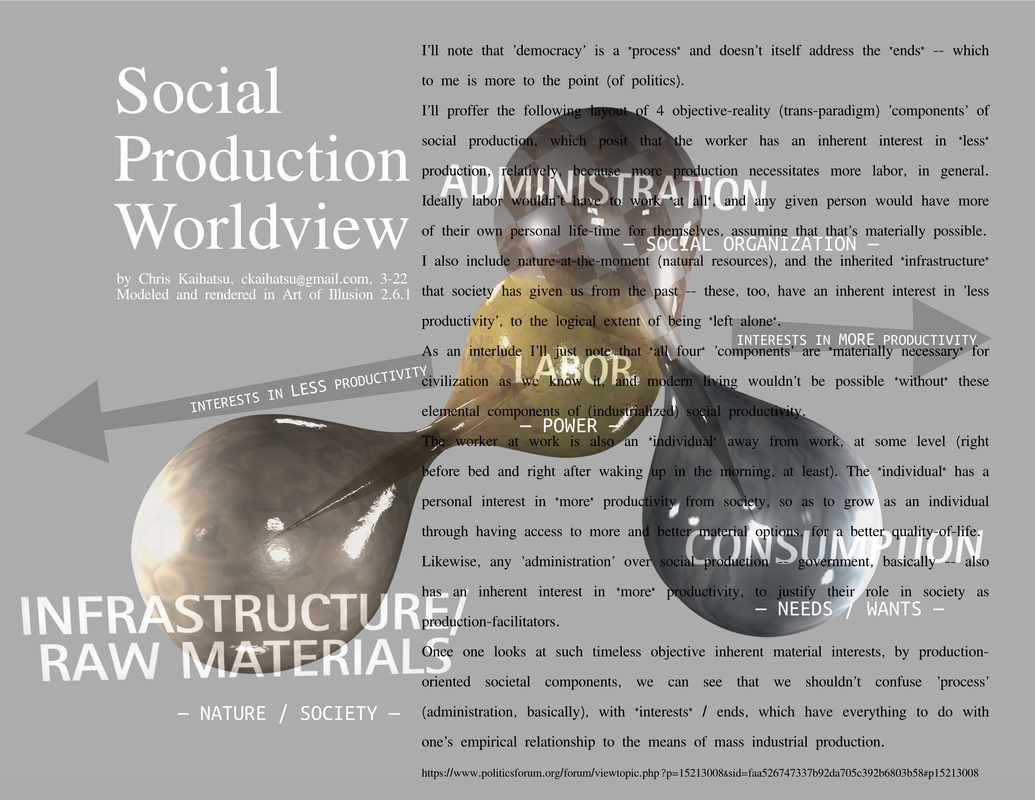
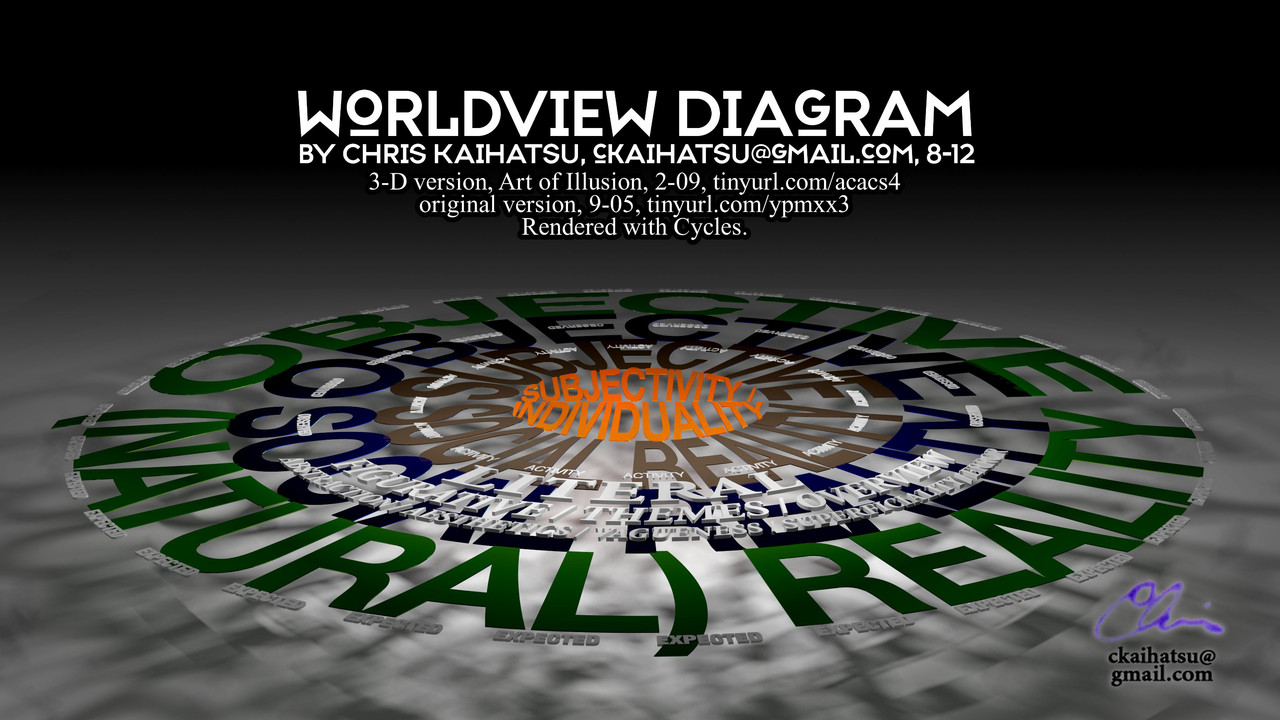
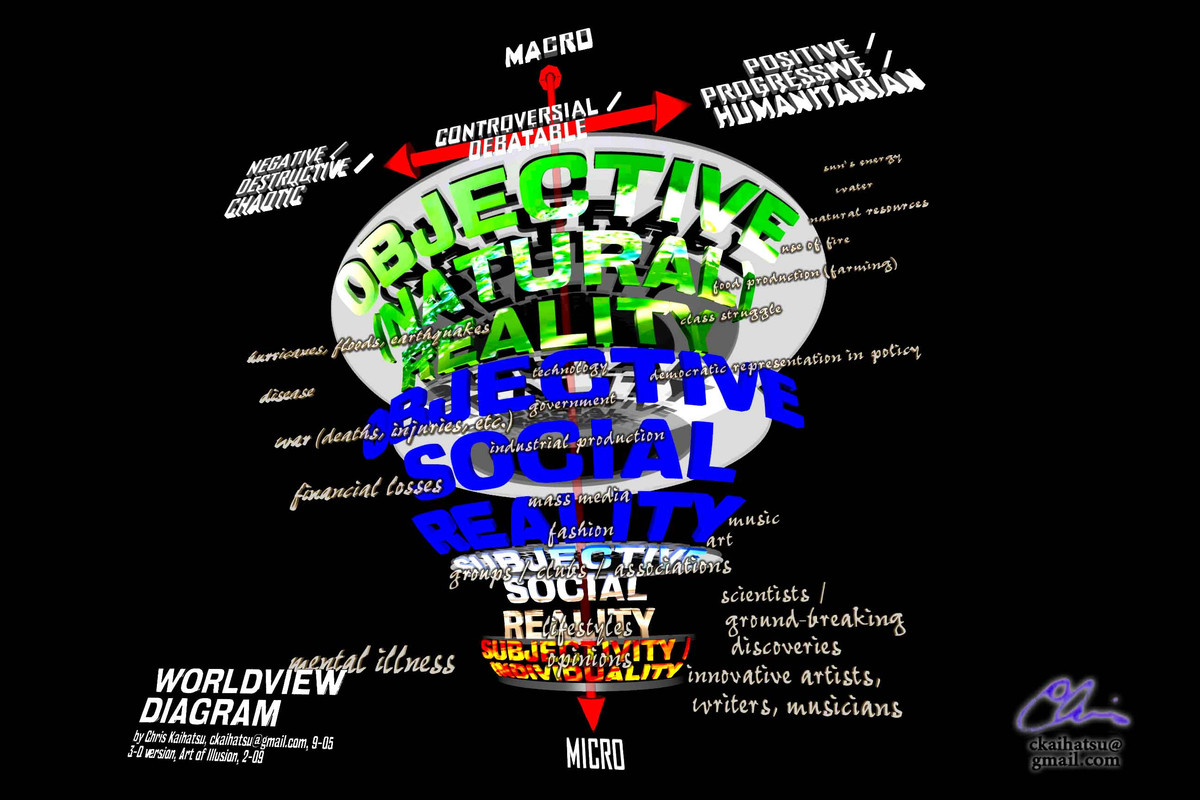
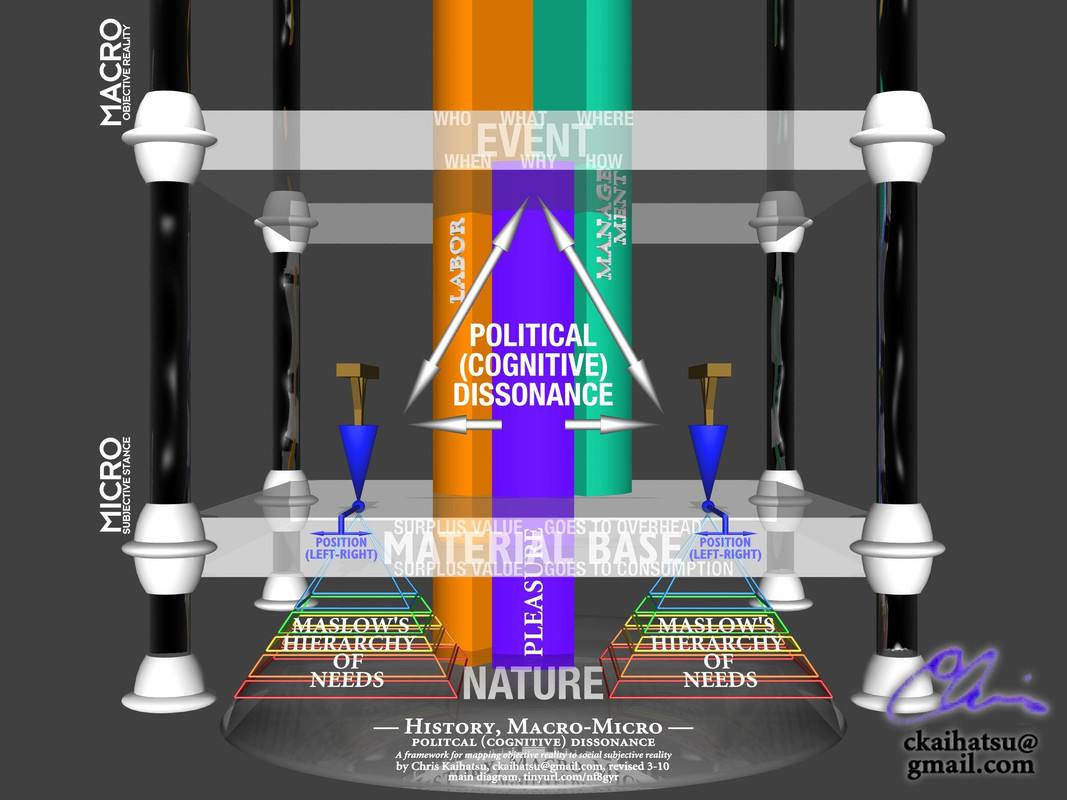

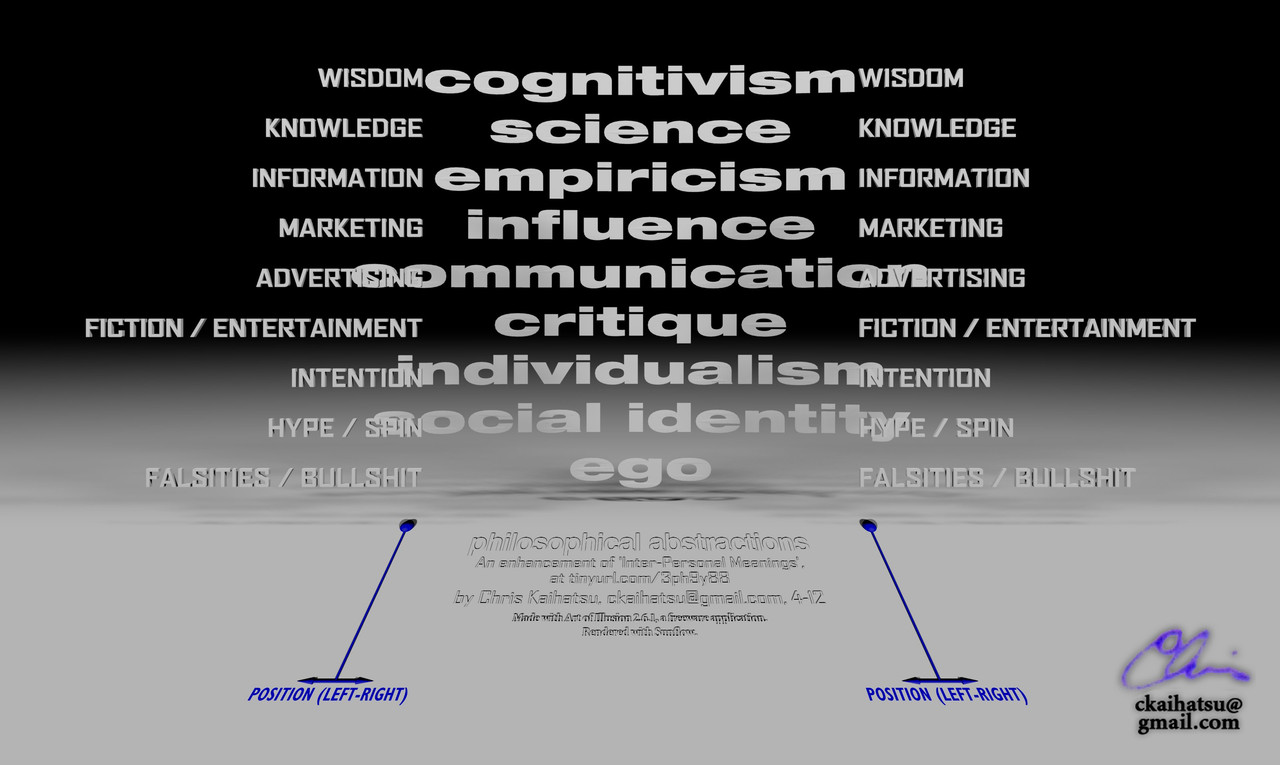
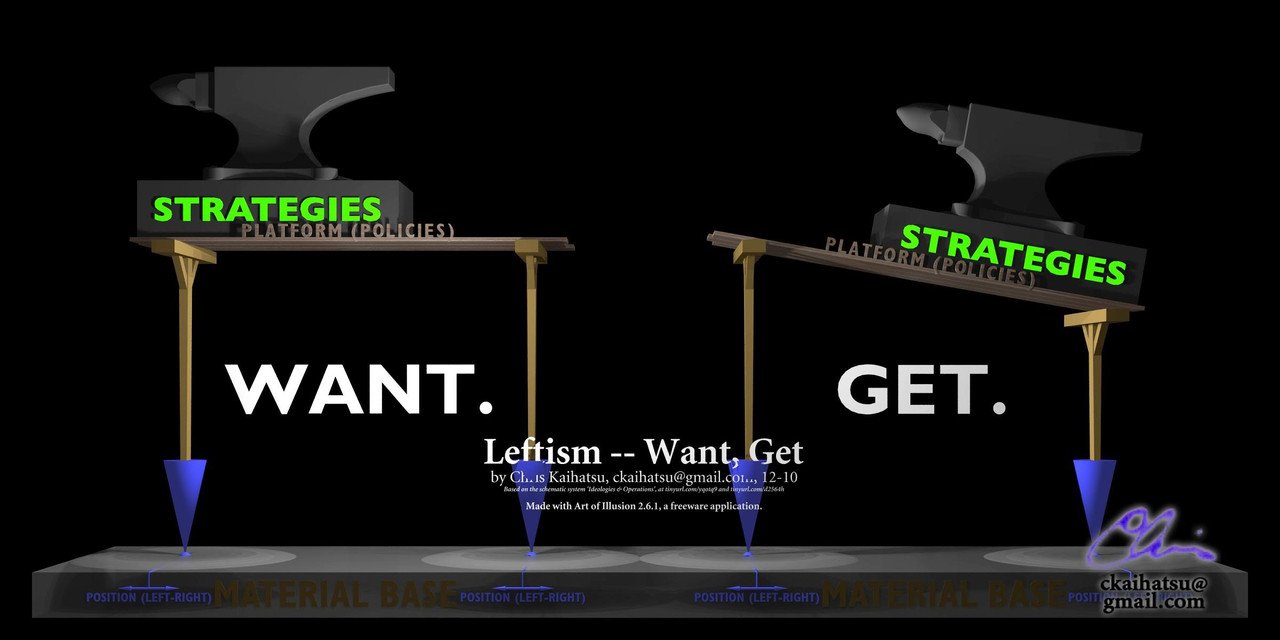

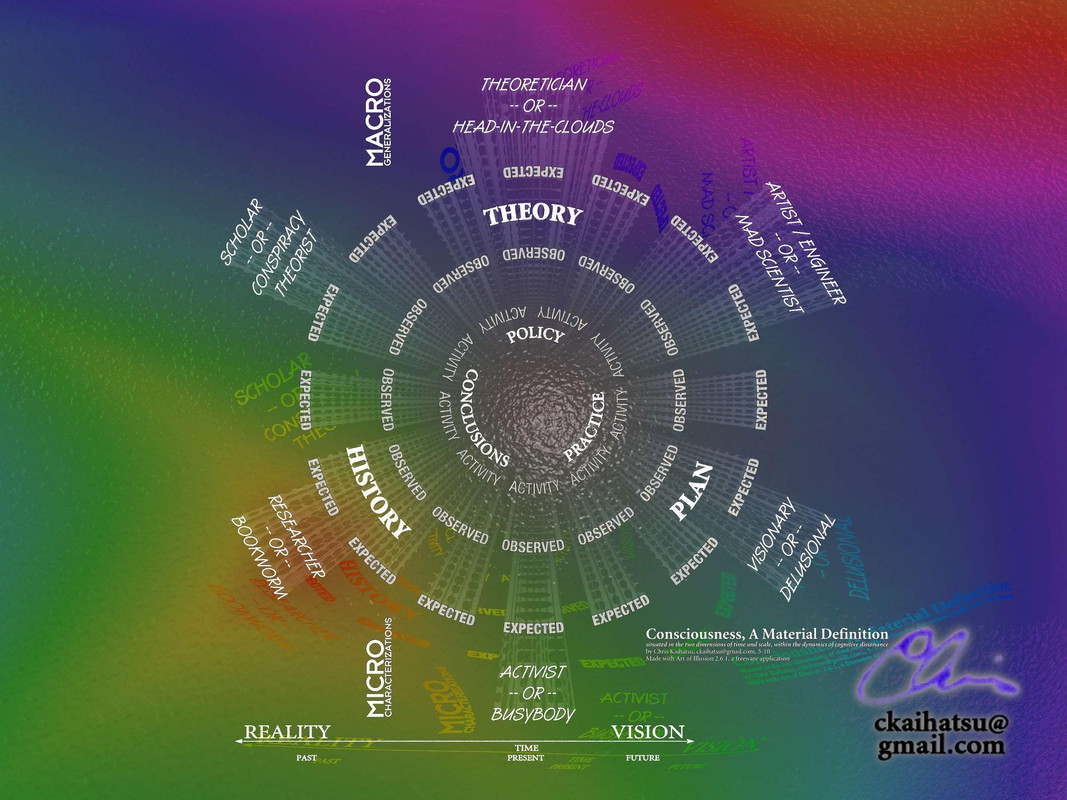
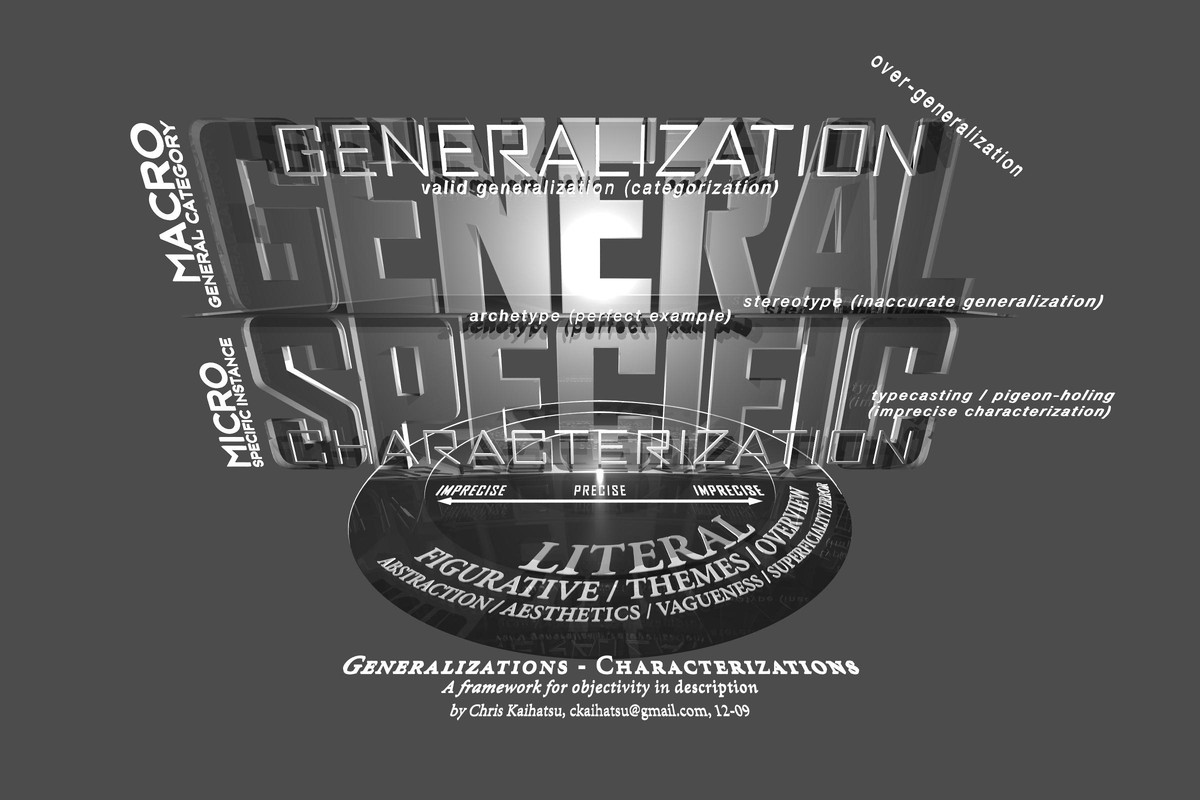
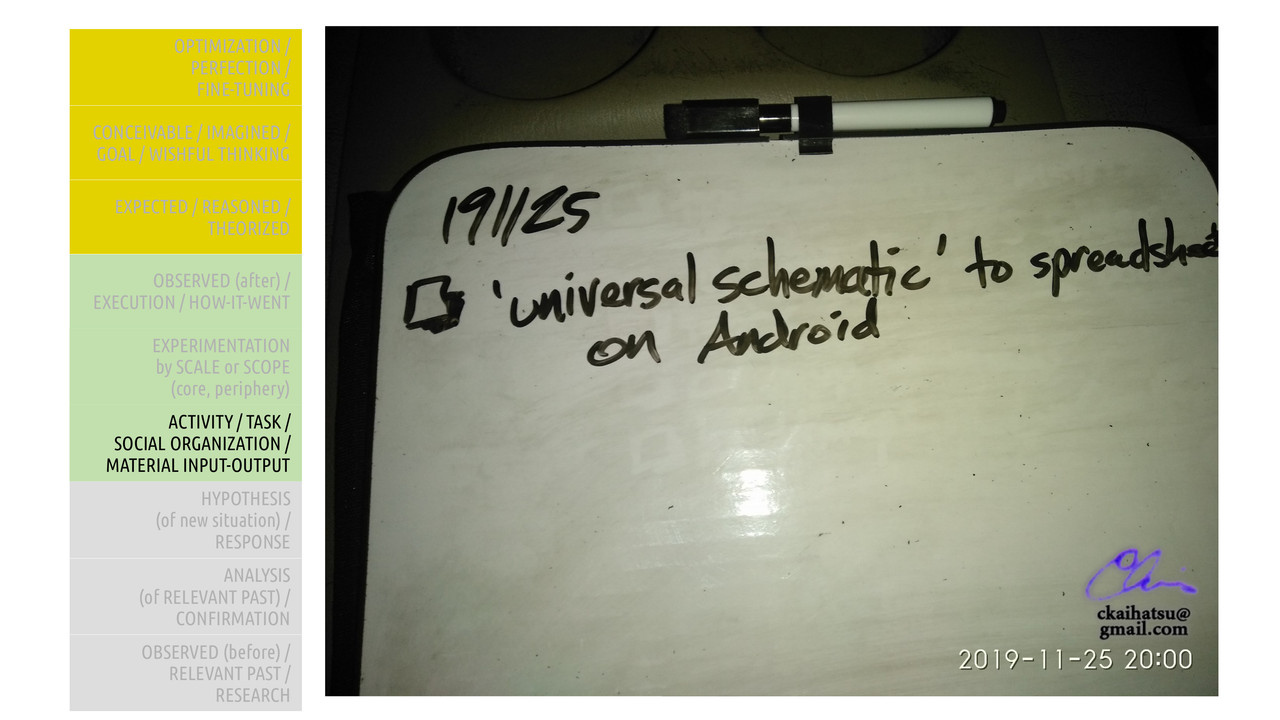

 - By Rancid
- By Rancid - By wat0n
- By wat0n